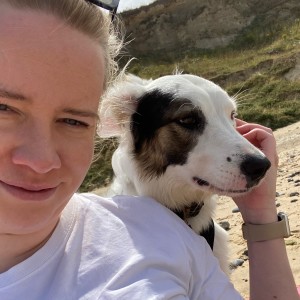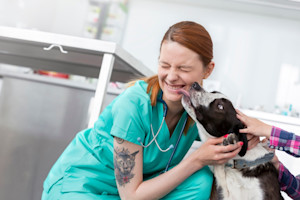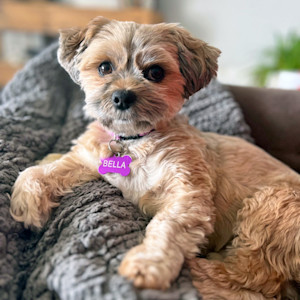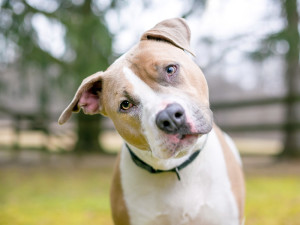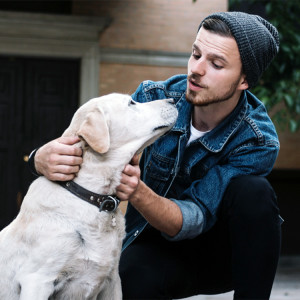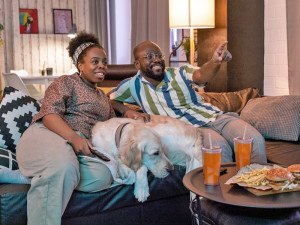Why Every French Pup Born This Year Has The Same First Initial
The alphabetical tradition that’s lasted nearly a century
France has given the world many wonderful things. Croissants. The Eiffel Tower. A specific brand of disdain that only a Parisian waiter can truly master. But they’ve also been quietly enforcing one of the most unusual pet-naming rules you’ve probably never heard of.
For nearly 100 years, every pedigree dog born in France in the same year must have a name starting with the same letter. Which means that in 2025, French parks are absolutely crawling with Alfie and Amelie pups.
For British dog parents, who name their pets everything from Dave to ‘Princess Peacock Unicorn Sparkle Puppycomehere’, it might sound pretty wild, but since 1926, there’s been a rule in France stating that all pedigree pups born in the same year must have names starting with the same letter. And before you ask – yes, this is real, and yes, French dog parents genuinely follow it (mostly, anyway… more on that later).
How much do you spend on your pet per year?
The system recently went viral on social media when Roya Foxopens in new tab, an American Francophile creator and French speaker, shared an Instagram reelopens in new tab explaining the unusual rule. The post has racked up nearly five million views so far and sparked discussion in the comments among Brits and Americans who had absolutely no idea the French practice existed, and French pet parents.
How the French pet naming system actually works
The tradition was dreamed up by the Société Centrale Canine (France’s Kennel Club equivalent) to help genealogists track dog lineage without losing the plot. Back in the 1920s, when dog breeding records were still being kept in giant leather-bound books, having all of 1926’s puppies start with ‘A’ and all of 1927’s start with ‘B’ actually seemed quite genius.
Nearly 100 years later, computers exist, and electronic databases have been introduced, but the alphabetical naming tradition? That’s not going anywhere.
The alphabet cycles through every 20 years. 2025 is an ’A’ year, so every French pedigree puppy born this year needs a name beginning with A. Next year? Time for the letter B. The year after that, C. You get the gist…
But here’s where it gets a little bit confusing: six letters have been banished from the rotation entirely. K, Q, W, X, Y and Z were deemed too difficult for finding decent French names, so they’ve been ghosted from the system. (Though frankly, if you can’t come up with names for K, you’re not trying hard enough. Kiki? Ketchup? Kevin? Just ask Kris Jenner…)
The French pet naming system loophole
There is, however, one crucial element that makes this whole system slightly less intimidating: the letter rule only applies to your dog’s official pedigree name – the one that goes on their papers if you’re registering your dog with the LOF, the Livre des Origines Françaisopens in new tab. But what you actually call your dog at home is completely up to you. (So you’re free to use the thousands of nicknames you’ve got in the back pocket).
Which means French pet parents have become absolute masterminds at creative rule-bending. Some of the examplesopens in new tab in the comments under Roya’s reel are genuinely brilliant. One pet parent wanted to name her dog Elvis but faced an L year, so officially, he’s “L-vis”. Problem solved.
Another was determined to call her pup Diego during a T year, so his papers read “The Diego”. Technically compliant, entirely main character energy.
Then there’s the parent who adopted a dog called Alaska, only to discover later that her birth year was P. The solution? She’s now Princess Alaska. The letter’s there, the beloved name remains and everyone’s happy.
What this means for British dog parents
Absolutely nothing, thankfully. In the UK, we enjoy complete and utter chaos when it comes to pet naming. We’re free to name our dogs Bella, Barney and Bailey in whatever year we please. We’ve got Labs called Mr Breakfast and Chihuahuas named Bone Crusher (yep, really). It’s anarchy, but we wouldn’t have it any other way.
But there’s something oddly appealing about the French system, isn’t there? Beyond the quirk factor, the tradition reveals something quite lovely about how the French approach their pets. It’s structured. It’s organised. There’s a sense of ceremony to it. Plus, it tells you something about a dog immediately – their age, their pedigree status, their place in the grand alphabetical scheme of things.
How the UK Kennel Club system names dogs
While Britain doesn’t have France’s letter-of-the-year system, The Kennel Club does have its own set of naming rulesopens in new tab that breeders must follow when registering pedigree puppies in the UK. The approach is pretty different – and arguably more focused on preventing confusion than creating order.
The biggest difference? No alphabetical coordination whatsoever. A litter born in January 2025 and one born in January 2026 follow exactly the same rules – there’s no collective theme, no annual letter, no built-in way to identify a dog’s birth year from their name alone – it’s organised chaos at its finest.
UK Kennel Club naming requirements
A registered name in the UK must consist of more than one word but cannot exceed 24 letters (including any kennel name). Perhaps most significantly, a registered name cannot be repeated within a breed – meaning every Labrador, every Spaniel, every Poodle must have a completely unique official name. This prevents any confusion in the breed records and ensures each dog has a distinct identity on paper.
Breeders with kennel names (which serve as their exclusive breeder signature) must include this as the first word in the puppy’s name. Beyond that, there are some practical restrictions: you can’t use the surname of the applicant, numbers, punctuation marks, initials or canine-specific terms such as ‘dog’, ‘bitch’, ‘champion’ or ‘Crufts’. You also can’t repeat words within a single name – so ‘Charlie Charlie’ would be out, for example.
The beauty of the UK system is that, like France, what you call your dog at home can be entirely separate from their registered name. The official pedigree name might be elaborate and follow strict rules, but your dog’s real name – the one that’s your password and the one you shout across the park in mild panic when you think you’ve lost them – that’s yours to choose freely.
So, your pedigree Cocker Spaniel might officially be “Willowbrook Autumn Moonlight Dancing” on her pedigree papers (or when she’s in trouble, and you need to full-name her), but she’s just Willow in the everyday.
Would the French pet naming system work in the UK?
Could the UK ever adopt such a system? Honestly, probably not. We’re too attached to naming freedom, too fond of calling Chihuahua’s ‘Dave’ and Great Danes ‘Peanut’ for the lols.
But perhaps we could borrow a bit of that French organisational flair to expand our creative boundaries. The whole alphabet system might be pushing it, but a bit of structure to encourage a touch more originality, rather than naming our fifteenth dog Luna (guilty!), that could be promising.
As one Redditoropens in new tab put it: “It’s a bit challenging so it adds a bit of fun for the naming... if you need to find a cute name I find it funnier to have the first letter imposed for a challenge, it forces creativity IMO.”
Or maybe not. Maybe the joy of British dog parenting is precisely that glorious, chaotic freedom to name your Dachshund Keith if you want to. Just you, your pup, and whatever ridiculous name popped into your head at 2am when you were filling out their forms in that puppy-induced exhaustion haze.



